What does it mean to be an entrepreneur and an innovator, and how do you become one?
To find out, we spoke to four soon-to-be-graduating CSU students, from four different majors, who have all learned what it takes through the Entrepreneurship & Innovation Minor.
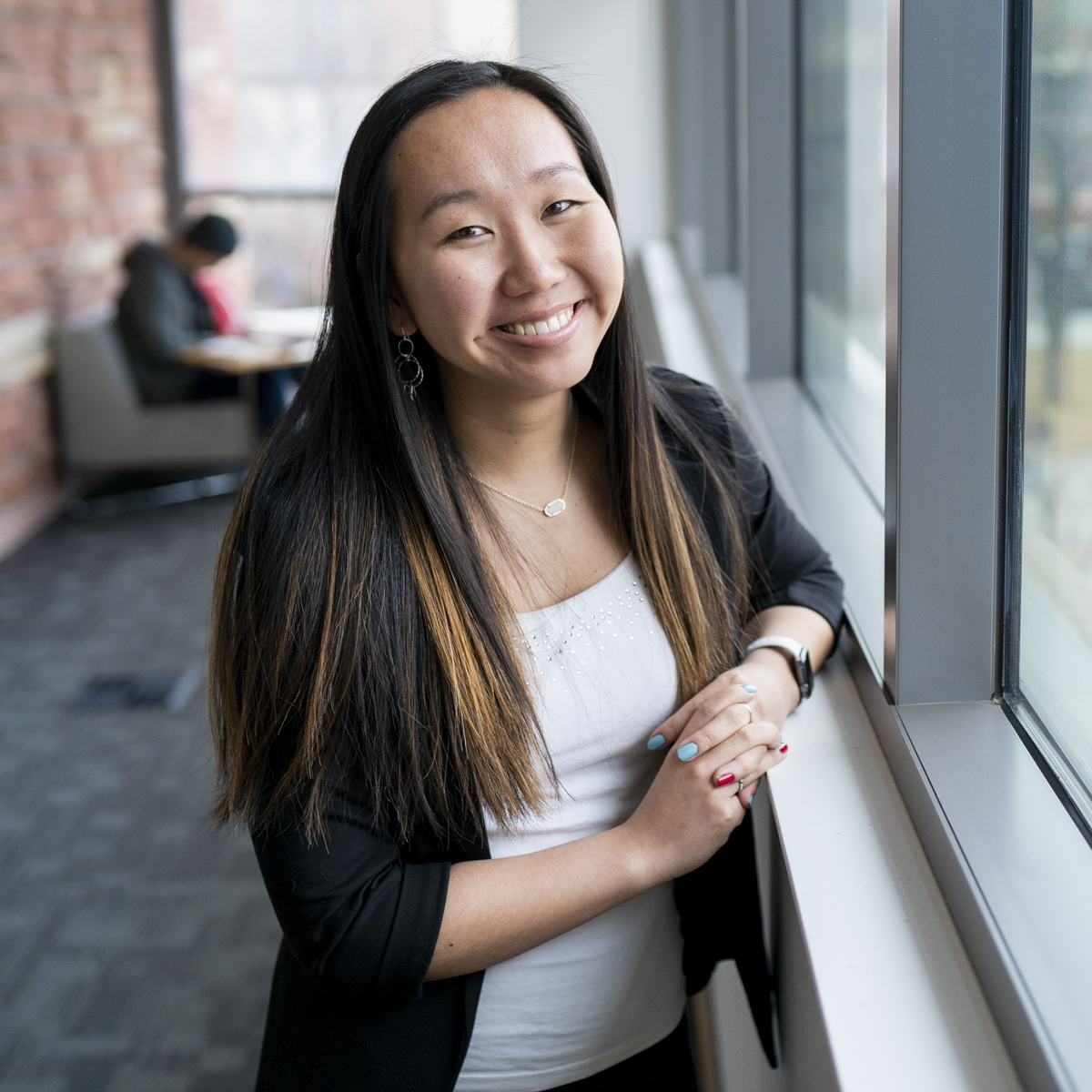
Mimi Mijiddorj
Senior, Human Development & Family Studies
For Mimi, being innovative means open-ended coursework where professors task students with solving complex problems and learning that she’s “able to apply it to life a lot.”
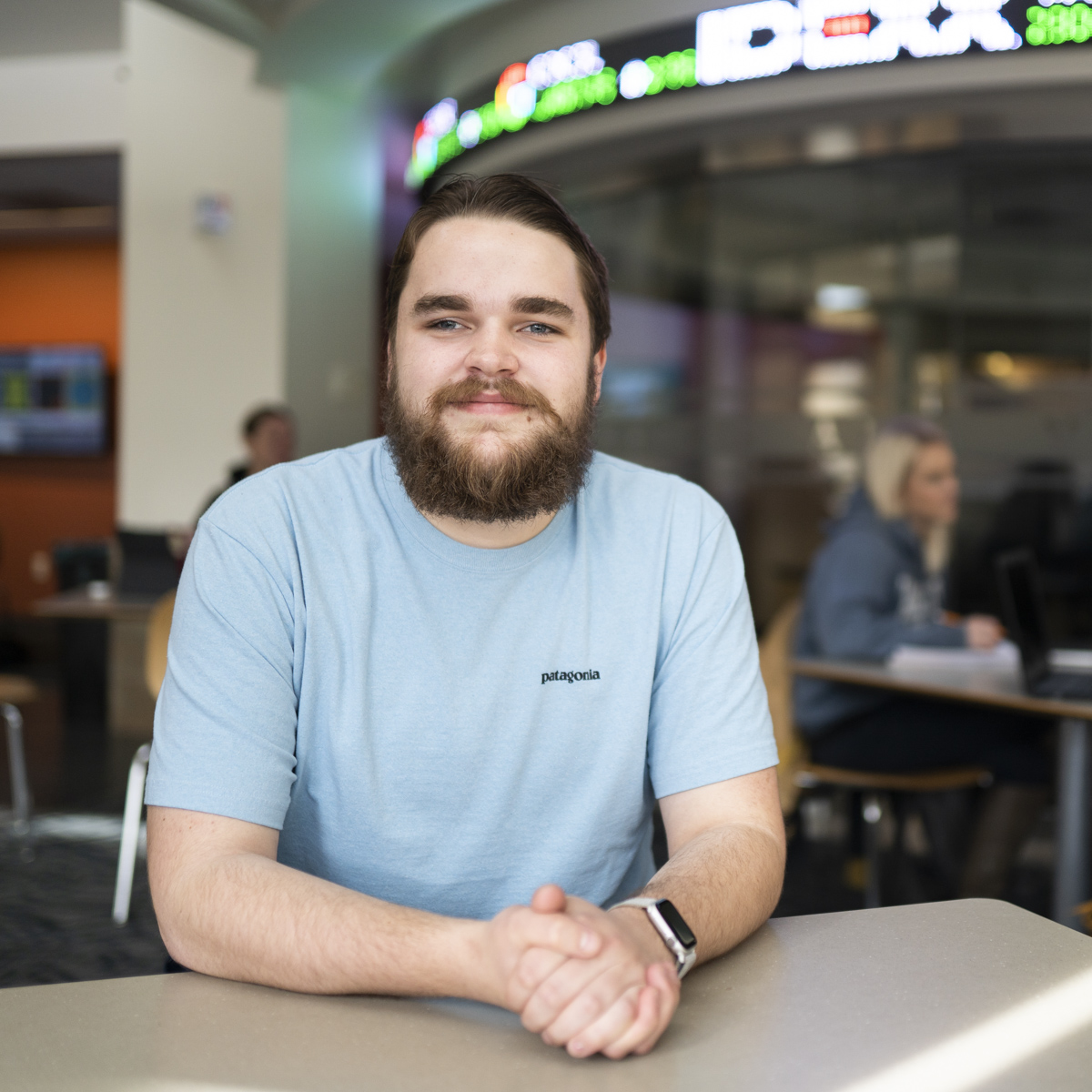
Jack Cowley
Senior, Economics
For Jack, being an entrepreneur means following in the footsteps of his father and grandfather and having one more “door open and available coming out of college.”

Aubrey Kruse
Senior, Psychology
For Aubrey, being an entrepreneur “is about figuring out how to truly make a living out of what you’re passionate about.”
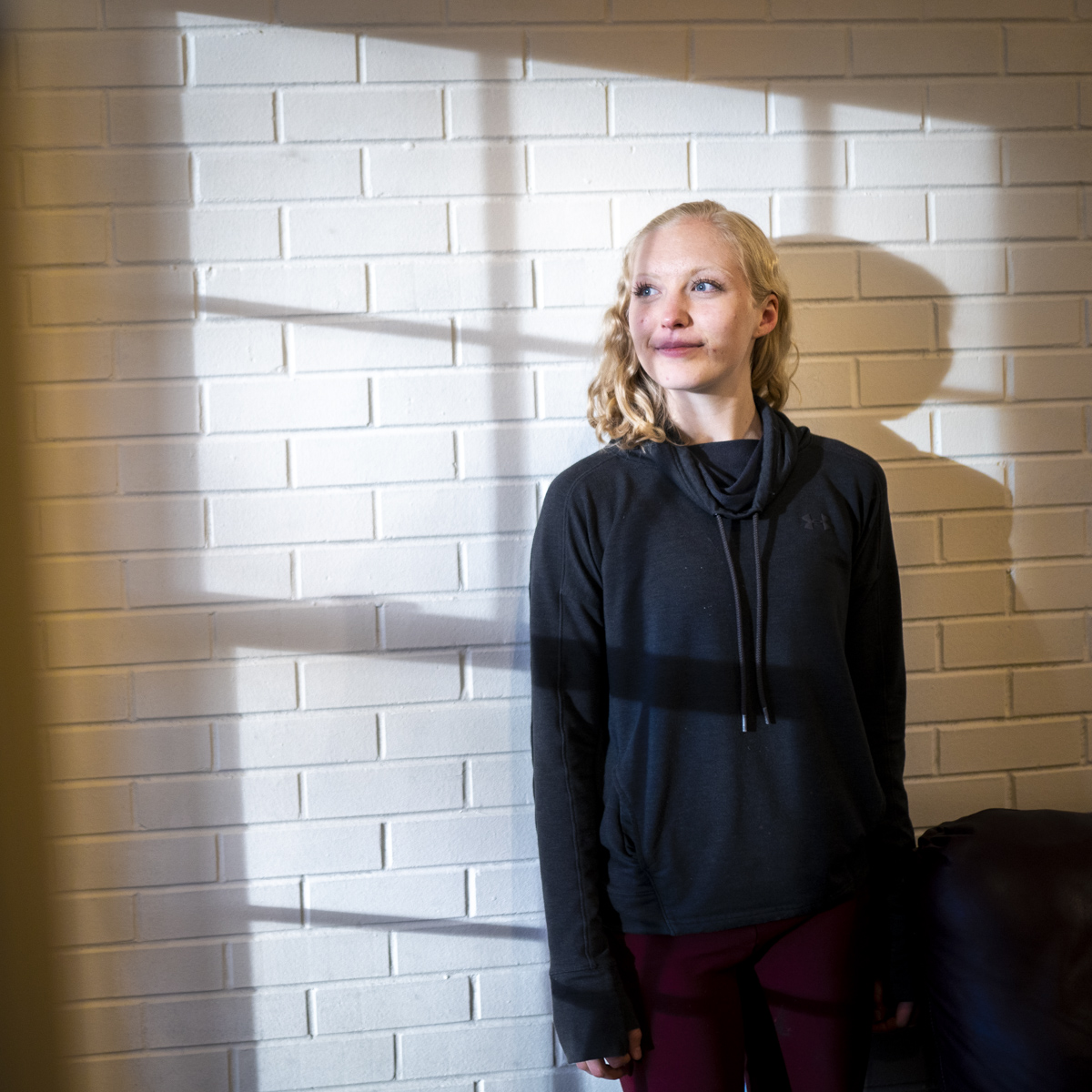
Haley Westmoreland
Senior, Interdisciplinary
For Haley, being an innovator is leveraging “how impactful businesses can be, in such a positive way.”
It’s all about finding – and fixing – problems
The College of Business Entrepreneurship and Innovation Minor helps students develop the skills they need to identify problems, create business solutions to address them and capitalize on untapped opportunities. The entrepreneurial mindset – of challenging the status quo, launching new ideas, and finding solutions to complex problems – is applicable in any industry, across startups and large corporations, nonprofits and everything in between.
Interested in minoring in Entrepreneurship & Innovation?
Mimi Mijiddorj
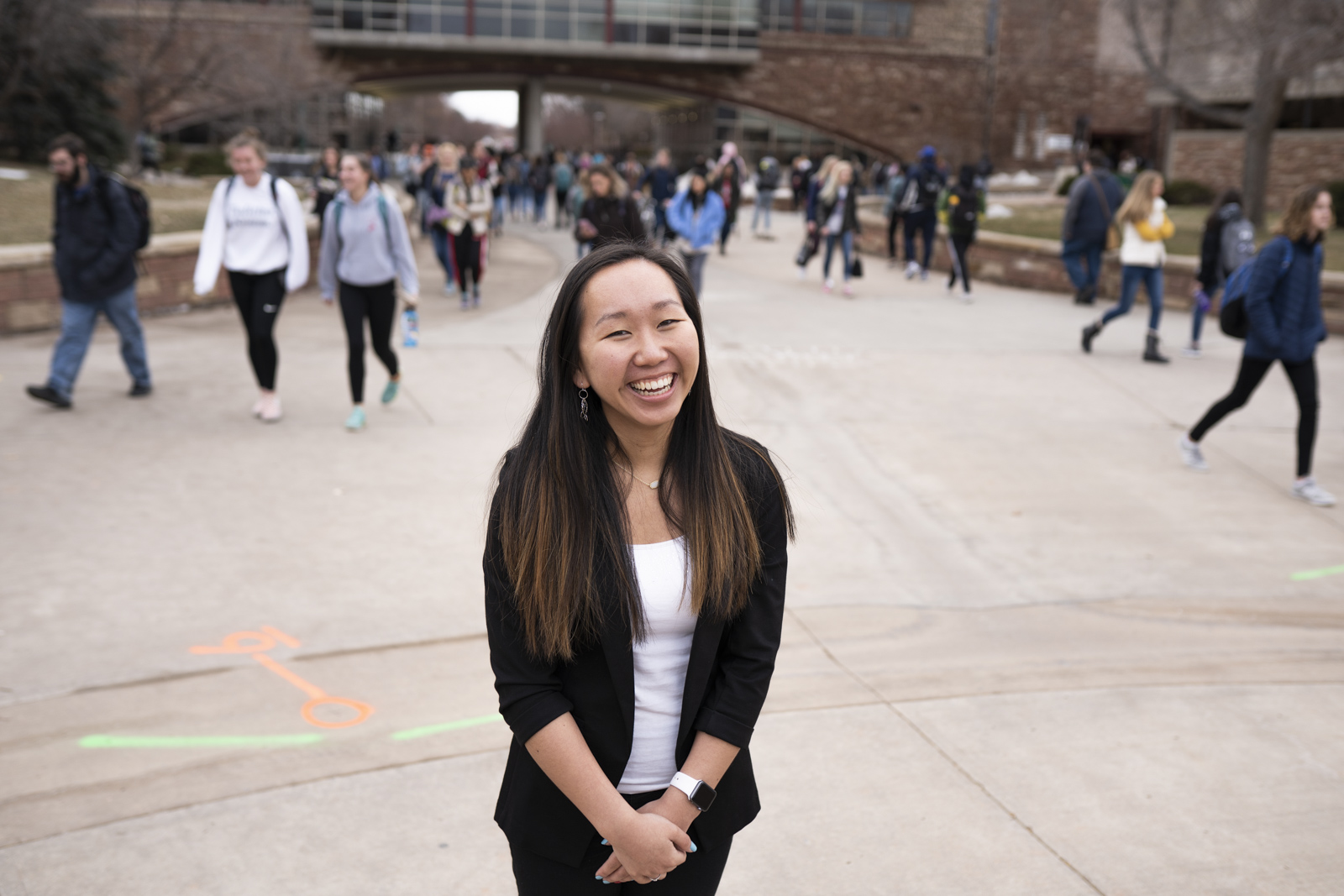
Mimi, like many students, came into CSU with one idea of what career she wanted to pursue after graduation, and is preparing to leave with another – powered in part by her time in the Entrepreneurship & Innovation Minor.
“I wanted to become a pediatric dentist starting off. I came into CSU and started taking my science classes and it didn’t go as planned. From then on, I was like, ‘Okay, I’m still very interested in healthcare, I want to be around people and I really like the environment, of just being a healer, and after three years I had done all my classes,’” said Mimi, so she began exploring other avenues.
“I had done internships and all my mentors said, ‘Mimi, if you have time in your schedule, take business classes, no matter what it’s going to be helpful in the future.”
“One of my friends had told me about the entrepreneurship minor in one of my eco classes, and I was like, ‘I didn’t know we had that! I want to do that too!’”
“So, within my entrepreneurship classes I got to learn the business aspects,” said Mimi, which is serving as a precursor to her goal of pursuing a master’s program in healthcare management.
“Within the next few years, the baby boomers are going to be a huge thing in healthcare. I think healthcare, especially with senior adults, can change really dramatically and I think we can implement technology,” said Mimi, and courses like Creativity, Innovation, and Value Creation helped her learn what she can do to make a difference.
The Entrepreneurship and Innovation provides students with a deep understanding of the entrepreneurial mindset, as well as a foundational knowledge of how businesses operate, allowing them to take coursework that builds skills they’ll need to navigate complex fields with confidence.
“Going into my business classes I was kind of nervous. I’m not really familiar with this kind of vocab, but it’s a very friendly environment. I didn’t feel out of place or completely lost, the faculty and students are all very welcoming.”
“The business classes are a lot different. It was smaller classes, the professors do more on-one-one. We get to do a lot of class engagement.”
The E&I minor has also had much more open-ended work, like professors tasking students to “figure this out and show how you were able to solve this problem, or create this product or service,” where there isn’t one right answer.
“Rarely do we ever have Scantron tests, mostly it’s presentations, group work, write-ups, and I like that more than Scantrons.”
“I think all of the things I am learning in my business classes are more… I’m just able to apply it to life a lot.”
“I think it’s very beneficial because just in discussions we all have different knowledge that we’re studying. I got to be close friends with an equine sciences student and she would bring up points that I would never think about, so that was really neat.”
“I think it helps having people from a lot of different majors in the classes because you get so many perspectives. Especially for entrepreneurship, because it’s so broad, having so many different perspectives is very helpful just to learn the content as well.”
Jack Cowley
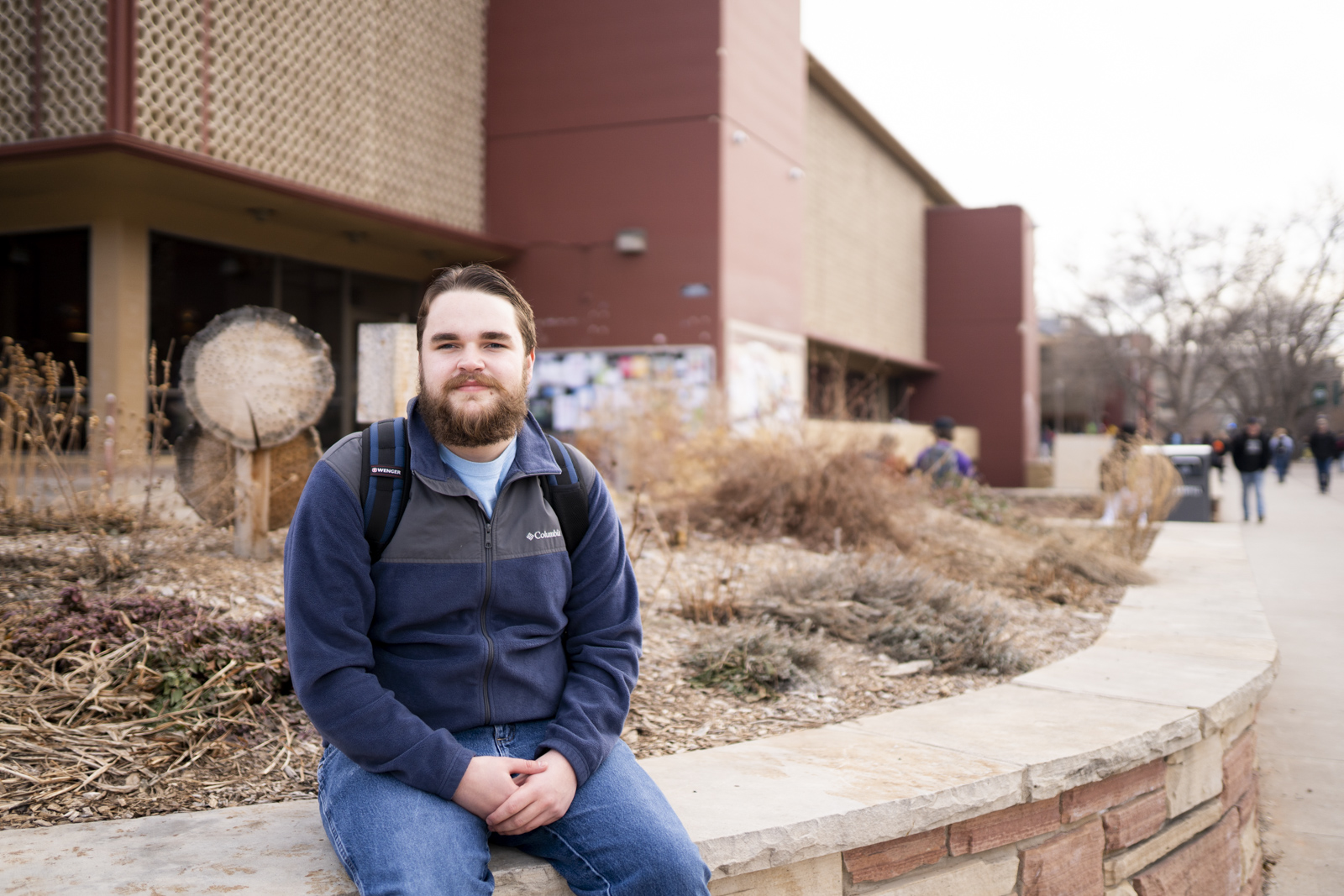
Jack comes from a family of entrepreneurs.
“My dad is a small business owner, his dad was a small business owner, those things were pretty inspiring to pursuing entrepreneurship,” said Jack. But, the “innovation” part of the minor was also a strong draw for him.
“If you really want to grow you have to continue to innovate and be strategic about what you do.”
“They say for an entrepreneurial concept or idea you usually have to come up with 40 or 50 ideas before you can come up with one that sticks.”
“Creativity, Innovation and Value Creation really dove into that. We kept a notebook of innovative ideas and concepts and one of our semester long projects was coming up with an innovative action plan for companies. We looked into a company’s innovative concepts and how we could improve on that.”
“Ever since I was a little kid I always liked finance and banking, how to finance a project. When I was younger I just always loved going to the bank with my parents for some reason,” said Jack, an interest that led him to his current economics major.
His dad created his own golf equipment company, and Jack’s interests follow a parallel path: “It would definitely be a dream job of mine to work in finance for a golf course.”
But, he also see opportunities in sports media where he could put his skills to use.
“I think the minor definitely helps with employment, the innovation aspect especially. … A lot of the companies that are hiring, a lot are those companies I feel like have the best open area for innovation. I’d say it’s definitely more tech companies right now because they’re getting a lot bigger. Apple and Google stick out as companies that hire quite a bit.”
“I like to have a door open and available coming out of college. If I want to go and start my own company, I can do that, if I want to go and hop right into a job, I can do that.”
“I really enjoyed the business professors I’ve had. They all know what they’re doing and what they’re talking about. I was afraid there may have been a, ‘Oh, you’re not a business major,’ attitude, and they’d spend less time trying to work with you, but I definitely haven’t experienced that.”
“The legal and ethical issues in business, that’s something I think everyone should know … that class in particular stuck out to me as pretty important. The professor for that course did a really great job and she was really interesting, but also learning about the fundamentals of marketing, even if you don’t work in marketing at a company, it’s good to know the core concepts.”
“I think everyone in a business has at least some idea of what everyone does. So, people knowing that going in to working at a company, it’s a pretty big benefit for them.”
Aubrey Kruse
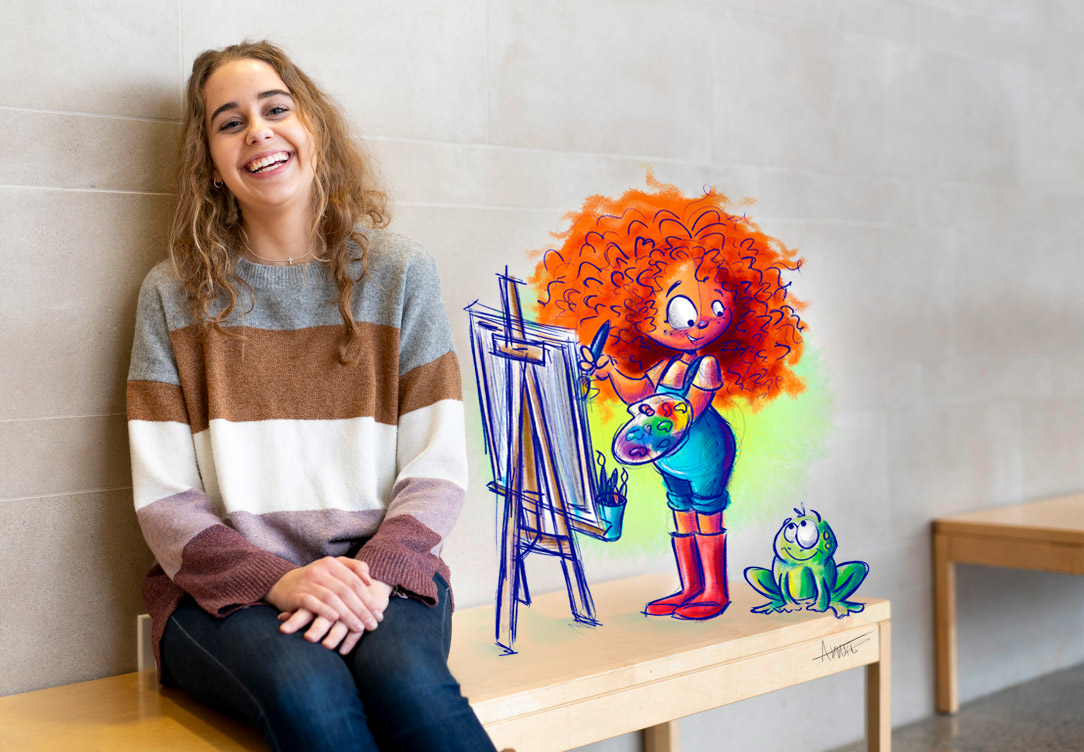
Aubrey’s dream is to build a career from her creative passion: writing and illustrating children’s books.
At first, she was skeptical about taking business classes.
“Beforehand, I thought it was one path and you go to corporate America, and that’s it.” said Aubrey.
However, her perspective began to change once she learned more about the Entrepreneurship and Innovation Minor, connected with faculty and students in the program, and realized that learning the fundamentals of business could empower her to chart her own career path.
“After getting involved I was really blown away by how they care about individual differences and how you can really maximize your unique skills sets, skills that can be applied in so many ways.”
“I think the biggest thing for me is to not be limited in my thinking, to embrace diverse perspectives and go about even just everyday tasks with an open mind, and not being afraid to make mistakes or think something is silly.”
“It’s really about being unique and trying to solve a problem that people may not realize is there, or bringing up ideas that people may not think of. For me, it’s what will resonate with people. What’s something that I uniquely came up with that other people cannot?”
“I’ve learned how to run my own business and be self-sufficient. But, if a job that fits comes along that’s great, because developing an entrepreneurship mindset is super valuable in whatever you do in life. It’s helped me break out of my comfort zone a little bit and recognize things I wouldn’t have.”

“I’ve always been interested in drawing and illustrating, and got connected with a non-profit called Finally Family, which helps young people who have spent their childhood in foster care. I illustrated a children’s book for them about seeing the good in everything and how seemingly sad situations can be turned into positive ones for. I realized that’s what I wanted to do, is take a story and bring it to life.”
Aubrey even developed a business idea in Fundamentals of Entrepreneurship based on helping children through storytelling.
“My idea was to create customizable children’s books for kids with disabilities,” said Aubrey, who was able to pitch the idea to a panel of entrepreneurs, including Jake Jabs, of American Furniture Warehouse, during a workshop hosted by the College of Business Institute for Entrepreneurship.
“A child who is in a wheelchair or who has autism, they aren’t able to see themselves much in children’s books, but especially customizable children’s books. Our company was called Bamboo Stories, and the idea was, we had a line of books that just address disabilities. The kids can see themselves represented, but also there’s a customizable option so you can choose the situation or the specific scenario so they can feel represented so they don’t stand out in any way. They’re just like everyone else.”
“It was really, really cool to have that professional, and collaborative environment, and be able to showcase your idea that started as just this small idea in a class and ultimately winning a prize for it. The competition enabled me to build off of everything I was learning from the minor, and further my efforts into pursuing children’s book illustration as a career.”
“It made me realize the direction I want to go with children’s books.”

“My dream is to write and illustrate children’s books. I saw that the entrepreneurship minor would equip me to build up a freelance career and work for myself and have that creative freedom.”
“I was just sick and tired of the stereotype of the starving artist and I was just looking for ways to develop this business.”
“I was on the fence about it because I wasn’t sure what to expect and I didn’t know how well it would go with what I wanted to do. I had thought about being an art major but the entrepreneurship route is a perfect compromise because it allows me to maintain my style and still figure out how I can make a living. It’s about figuring out how to truly make a living out of what you’re passionate about.”
“MGT 330, Creativity Innovation and Value Creation, that was by far my favorite class I’ve taken at CSU, because you could take what they were teaching and apply it to whatever you want, and that’s what I love about the minor. I can apply these principles in my own way and be creative about how I do it.”
“It gave me ideas about how I want to pursue my own career and I learned about my peers’ unique perspectives and how we can collaborate to create something. To be able to collaborate with other people who are strong in my weaknesses and vice versa, I think that’s really cool to see, because in the minor people come from such diverse backgrounds and majors.”
The topics in the program also took on new meaning when Aubrey began connecting them with her interests.
“Finance can seem super dry, but when I learned how to apply it to my own field, all of a sudden it became extremely interesting and applicable.”
“In all the classes I’ve taken for entrepreneurship so far, they’re just incredibly interactive and you just get to know your peers really well, which is a lot of fun.”
“Things might be outside of your comfort zone, or you wouldn’t think they have to do what you want to do, but you can truly apply everything to what you want to do.”
“Don’t shy away from it because you think it won’t be applicable to what you want to do. The professors care, and I think that’s the biggest thing too, all the professors I’ve had have genuinely cared about what I can do to pursue my dreams.”
Haley Westmoreland
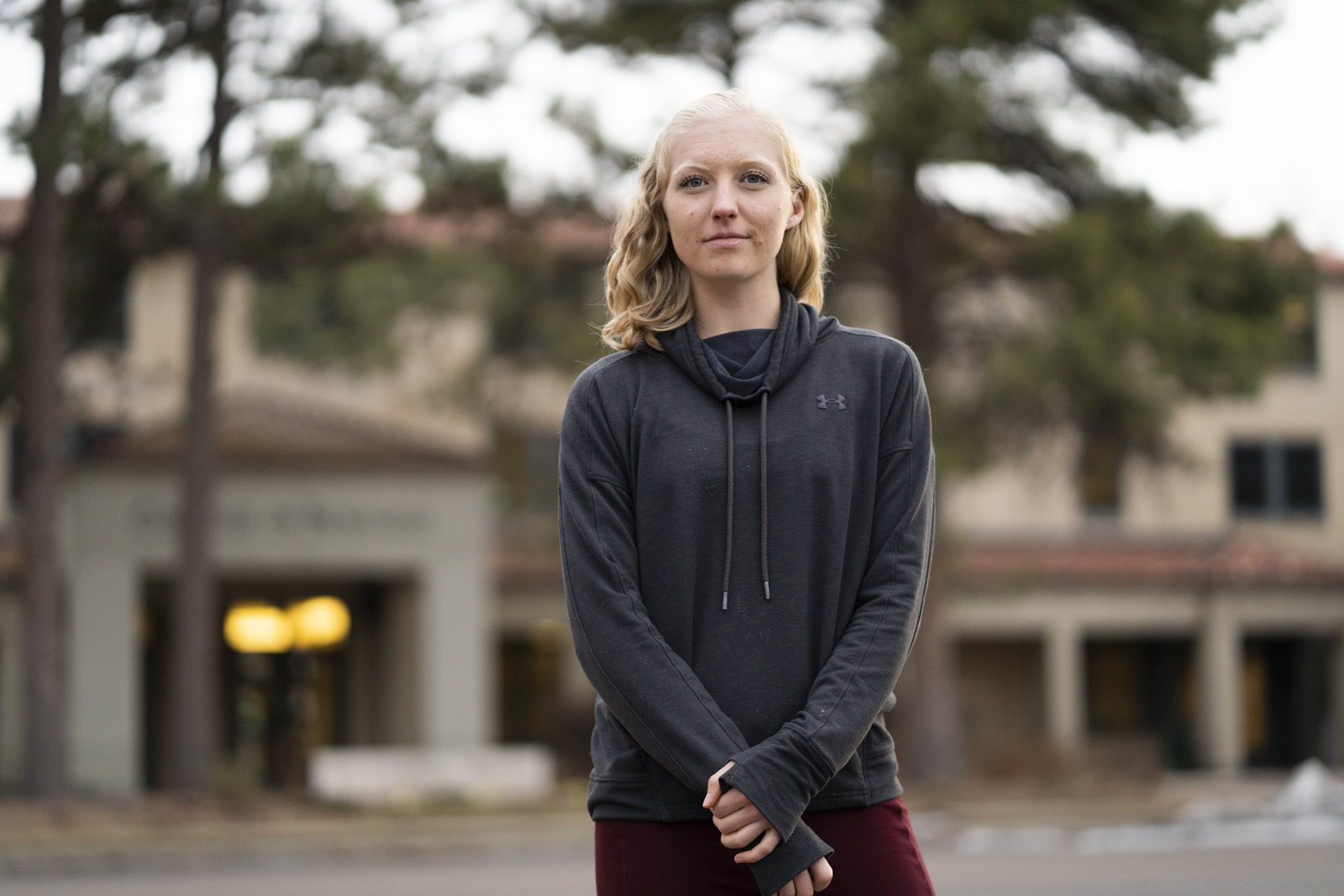
Haley studied abroad in Thailand, interning with traditional herbalists. Through that experience, she helped them to launch a business selling their supplements, created using traditional practices, eventually facilitating their expansion to North America.
Haley learned about the dedication it takes to create a business by forging the path herself. Now, as a student in the Entrepreneurship & Innovation minor, she’s learning from educators who have paved the way and are dedicated to making it easier for people to create their own ventures.
“The minor has allowed me to actually do something with my creativity, instead of just having all these awesome ideas and not being able to do anything with them.”
“It’s really nice because I am a lot more creative and right brain thinking, and there were a lot of classes that were like that. ”
“I also found the Institute for Entrepreneurship,” said Haley, an organization in the College of Business that takes a zero-barriers approach to helping CSU students – and community members – test their innovative business ideas and put them into practice.
Entrepreneurship and Innovation Minor students are uniquely positioned to apply what they learn in the classroom to real-world challenges through a close connection with the Institute, which offers accelerated access to a range of resources from free workshops to networking and funding opportunities.
After her experience co-founding a company without any formal experience, “I realized I had no idea how to run a business.”
“I was doing all these things that we were learning in class, but I just didn’t know what to call it. Before, I think it was just learning the hard way, but in class I got more of a foundation and structure for what I was doing, which I think can be really helpful for other students who are in business or trying to run a business.”
“It’s like, ‘Oh this is a process that’s been done for a long time.’”
“I had this perception of business as more negative, kind of money-driven. I took a class in social entrepreneurship and it really changed my perspective and really just fired me up on how impactful businesses can be, in such a positive way.”
What is social entrepreneurship?
“Triple bottom line comes to mind: that people, planet and profit are all equally important. Also, taking whatever passions the entrepreneur is interested in and using that through the triple bottom line. Instead of doing something just to make money, you can take something you’re really passionate about and apply it.”
“I really want to find a job in the social entrepreneurship space or create a start up in social entrepreneurship. That was so impactful for me to see that business can create changes.”
“Just my experience in the Institute for Entrepreneurship, I really like the idea of working within a space that fosters growth for social entrepreneurs. I’d love to work in an incubator space that works on social ventures.”
During Haley’s time at her herbal supplement company, “I saw so much potential in creating this positive loop: we can give back to the land that we’re taking from … and really just creating a system that can positively impact everyone involved.”
Now, she’d love to help others make those same connections and put them into practice.
“I was the head of our North America department and branding [the company]. I dove into that for about 2 years and that was my life, and I stepped away from it because it was too much with school.”
“But, last semester I was still running my business and I was able to apply all my classes to it, even some of my projects I was able to focus on the business.”